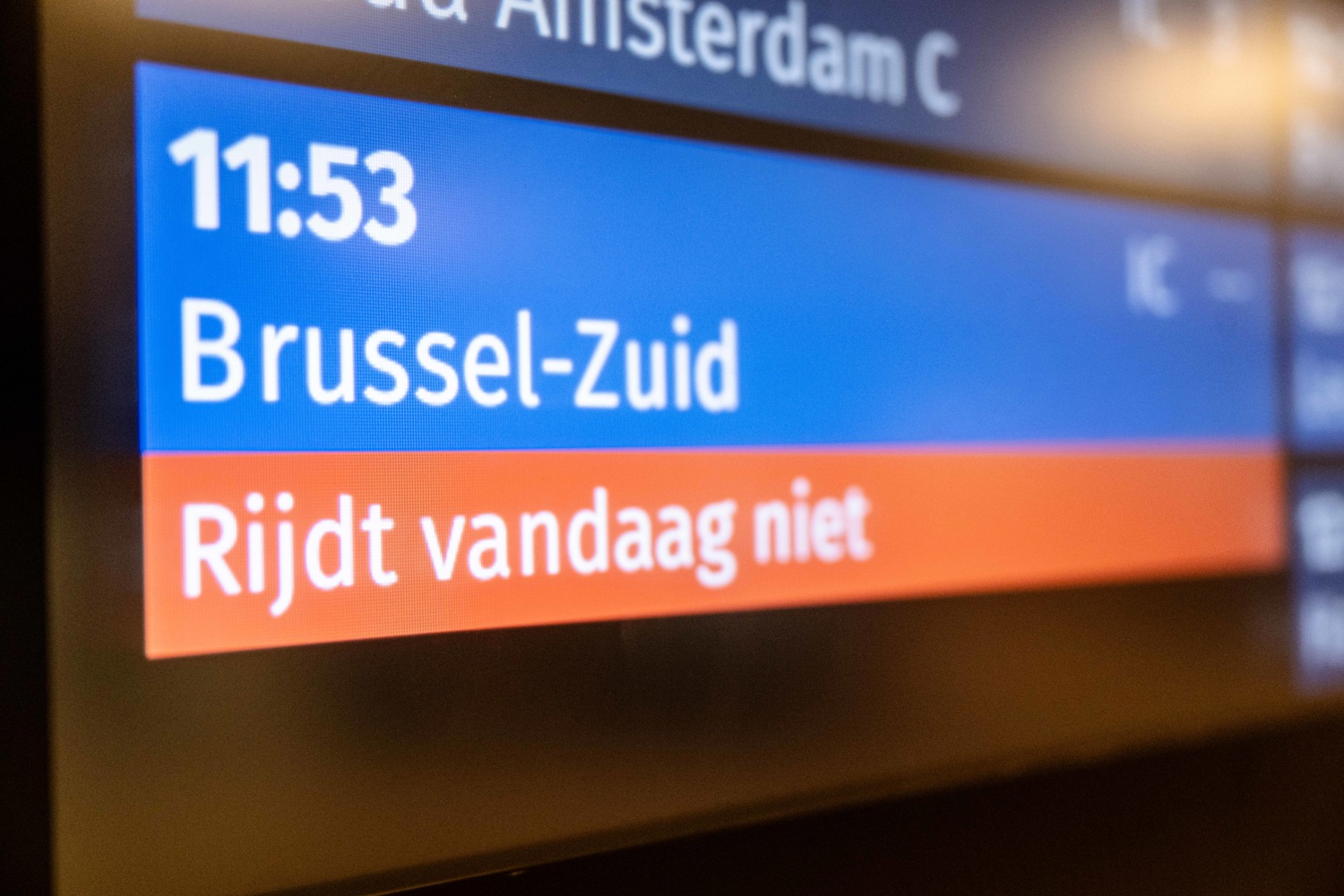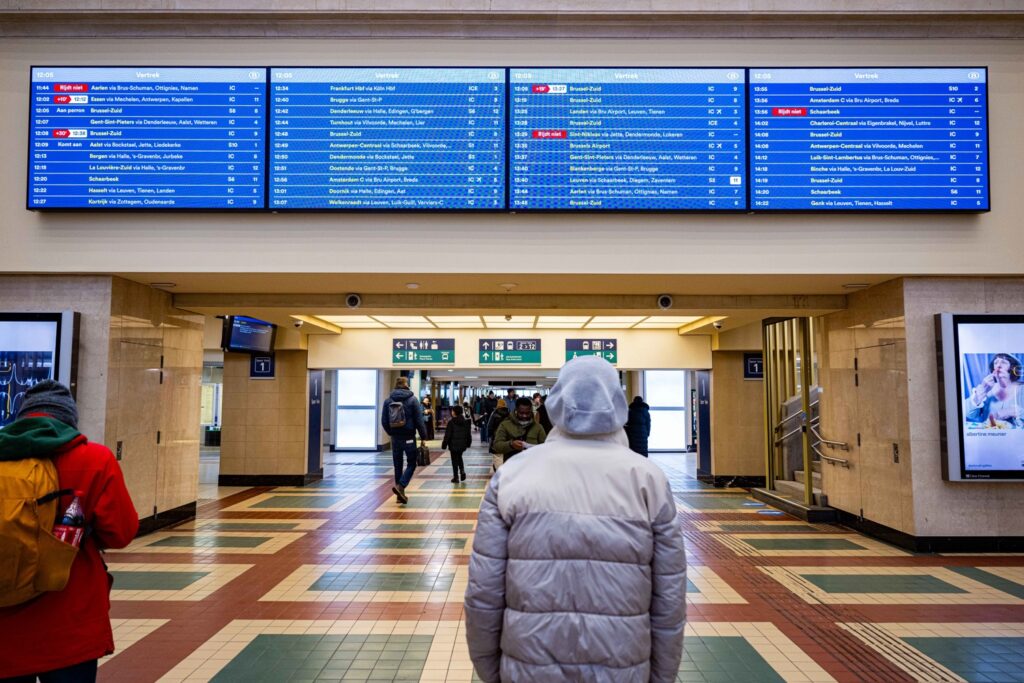The second day of the 48-hour strike on Belgium's railways is taking place on Thursday. One union said it feels positive about staff's willingness to strike, while management considers the large-scale action unacceptable.
In October, a double two-day strike was announced by the two railway unions for SNCB, Infrabel and HR Rail. The first action took place from 22:00 on Tuesday 7 November until 22:00 on Thursday 9 November, while the second started on Tuesday evening, leading to disrupted train traffic across the country. All train traffic will return to normal by Friday morning.
On Wednesday, union ACOD Spoor said that it had a "positive feeling" about the strike so far. "Not because staff are on strike, but because there is as much willingness to strike as during the 48-hour strike in November, and in certain professional categories even more," union President Günther Blauwens affirmed. The strike posts were also well-staffed.
However, this time around one union has decided not to participate in the action: the Christian union ACV Transcom withdrew its strike notice after constructive talks and concrete commitments by management.
National railway operator SNCB stated on its website that management considers the action by ACOD Spoor and VSOA Spoor unacceptable, especially towards train passengers.
"Moreover, their defiance of SNCB's necessary efficiency improvements, contained in the public service contract concluded with the government at the end of last year and necessary for quality service and the future of the company and its employees in a liberalised market, is totally irresponsible."
Slightly different alternative service
As was the case during the last strike, an alternative train service is being provided for each strike day based on the number of staff who have indicated they will work.
"A different alternative train service will be provided for each strike day. Train services may therefore differ on Wednesday 6 and Thursday 7 December. Depending on this, disruption may be greater in some provinces than others," SNCB noted.
Three in five IC trains (inter-city, connecting the main cities in Belgium) will run, while two in five S (suburban trains in and around several cities) and L trains (stopping at every small station between bigger cities) will run. Most P trains (trains running during peak hours in the morning and evening) will be cancelled.

A train station screen indicating that a train is cancelled. Credit: Belga
"About the same number of trains will run on Thursday as on Wednesday as part of the alternative timetable, but they will not necessarily always be the same trains," said SNCB. "Travellers should therefore check their journey in advance via the journey planner."
People who arrive late to work or school due to the strike can download a 'disruption certificate' (attestation de perturbation) on the SNCB website, which will be available seven days after the strike. Financial compensation may also be claimed on a case-by-case basis.
What is the strike about?
Originally, the three railway unions organised the strike to voice the rising discontent among railway staff about the internal reorganisation and "productivity measures" that management wanted to implement. Unions also stressed that workers were unhappy with some of the management's intentions, such as halving the 20-minute preparation time of train conductors.
Blauwens argued that the discontent among staff has never been greater. "The prevailing staff shortages increase work pressure. Staff are confronted every day with failing work tools and an unworkable railway structure. There is more need than ever for stability at the railway."
In November, over 6,200 railway workers went on strike: more than of 25% SNCB employees, 17% of Infrabel (the rail network operator) employees and 2% of HR Rail (the legal employer of railway staff).
Discussions between unions and management will reportedly resume after the strike.

